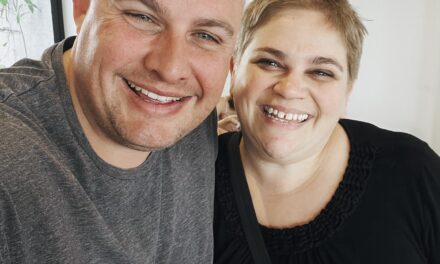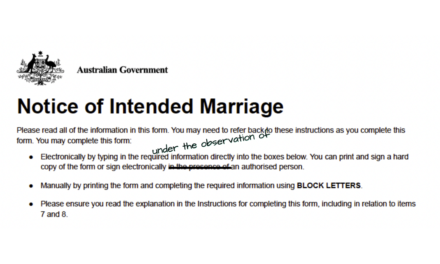Do you know the Greek myth of King Sisyphus? As retribution for tricking the gods, he was punished to an eternity of pushing a large boulder up a steep hill only to have it roll back down just as he reached the top.
With circumstances surrounding COVID-19 changing by the day (sometimes the hour), trying to keep your couples updated feels a bit like chasing this boulder. Just as you think you have a handle on weddings in the pandemic age, there’s a new announcement from the PM or Premier and we’re back at the bottom of the hill. Even as I write this, Gladys Berejiklian is on the telly advising there will soon be a ban on all non-essential services in NSW…
When this happens, it’s very easy to give up and just wait for your couples or the Government to make all the decisions for you. But as frustrating as it might be, the best thing you can do for your business right now is to keep in touch and stay visible. Your couples are looking for guidance, and as a wedding expert, there are some huge advantages to stepping up.
Great customer experience (not just customer service)
Customer experience strategy is a fancy term that in its simplest form means putting the people who use your services at the centre of your business decisions. Celebrancy is a very human-centric industry, so most of you are probably do this already without even realising it. While customer service is often reactionary – only springing into action when the customer contacts you with a problem first – customer experience is proactive and aims to anticipate the best way to help a client.
During a crisis, it’s important to continue this client-first mentality. That doesn’t mean you need to start refunding everyone (you still need to be in business for next year’s couples), but it does mean that you should be doing what you can to keep your couples informed and feeling supported. In addition to all the financial and emotional stress that everyone is experiencing at the moment, your couples are also dealing with the biggest event they will likely ever plan. Just letting them know you are there to help can be super comforting.
Take control of the conversation
The bonus effect of hopping on communication early is that you can lead the conversation with your couples. If you wait for them to call you, chances are they’ve already decided what they are going to do. By making first (and continued) contact, you’re opening up a dialogue and letting them know what options you can provide.
I’d recommend emailing first, then following up later with a phone call if necessary. This gives your couples a chance to think about how they want to respond rather than being put on the spot.
Work together for the best possible outcome
Ultimately, we want to continue to work with our couples safely and legally. The best way to do this is encourage them to work with you for a solution. This might mean that all planning meetings are now done through videoconference or postponing a ceremony until next year, but whatever it is, you want it to be a negotiation so that it works for both the couple AND you. The last thing you want is a new ceremony date you can’t attend.
What you should say
Recently, Josh wrote that we should only answer with three things when responding to client’s emails. And sure, these things are important (in fact, they’re included in my list below), when it comes to a being proactive, I believe we can go a little further.
I’m not going to write an email template, because the situation is changing so rapidly that it may already be out of date by the time you are reading this. Besides, your business and your couples are different to mine – to quote the theme song from a popular ’80s sitcom “what might be right for you, may not be right for some”. However, I think there are a few do’s and don’ts that are worth considering…
The Do’s:
- Do reiterate the current regulations about gatherings in Australia and your state.
Use the exact words from the Government press releases and provide links to Government websites. - Do direct them back to their client service agreement.
You might be willing to be more flexible in these extreme circumstances (NB you don’t have to be), but this should still be your baseline. - Do explain what steps you are taking already.
Reassure your couples that you know the law, you are taking precautions and their safety is one of your top priorities. - Do talk about any contingency strategies you have in place.
Yes, Plans B, C & D may all change tomorrow, but show that you are doing everything in your power to manage the things you can. - Do be clear that as the situation unfolds, plans may change.
You can’t provide guarantees, but you can let them know that you will stay on top of new developments. - Do encourage your couples to reach out to you before they make any final decisions.
Ideally, you want to work *with* them for a solution that suits both them and you. - Do let couples know when and how they can contact you.
Maybe you’re available 24/7. Maybe you can only take calls after 6pm on weekdays. Whatever it is, let your couples know the best way to get in touch for a quick response. - And most of all, do let your couples know that you are there to support them as best you can, whatever they decide.
The Don’ts:
- Don’t tell your couples what to do.
Suggest options, of course, but this is a highly personal decision they will need to make based on their own expectations and circumstances. - Don’t make promises you can’t keep.
Be particularly careful with your wording – “may”, “possibly” and “depending on” are your friends here. - Don’t speculate.
We really don’t know how long this is going to go on or what Government regulations are coming next. The best we can do is offer solutions based on the current information. - Don’t offer health advice.
By all means provide links to reliable sources such as the World Health Organisation and the Department of Health, but unless you’re a doctor specialising in contagious diseases, leave the medical advice to the experts.
Unlike Sisyphus’ curse, this crisis will eventually pass. But if you want to be at the top of that hill when it does, you’ll need the help of your couples to get there.
 This is a guest post by Alison Pickel
This is a guest post by Alison Pickel





Great advice I will follow, thanks Alison and Josh for providing a platform!
And thanks to Sarah for giving me the opportunity to write this piece.
You’re very welcome